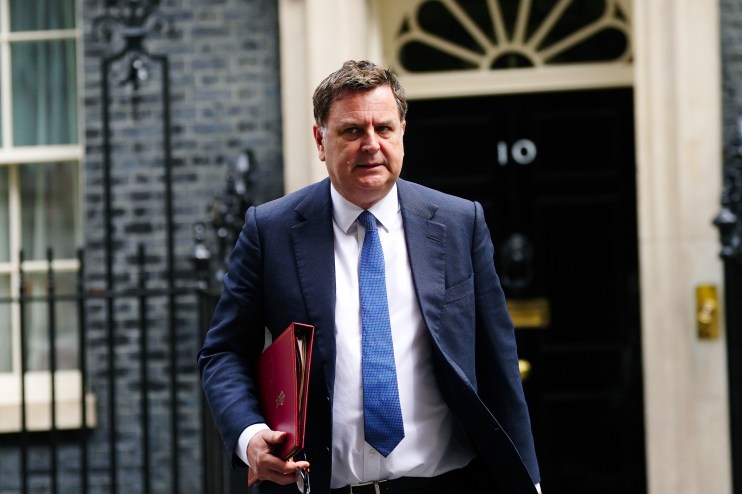Pensions secretary: Triple lock has ‘very long term’ question marks as cost spirals

The triple lock pensions guarantee has “very, very long term” question marks over its sustainability, the pensions secretary Mel Stride has admitted.
Under current government policy, the state pension rises each April in line with whichever is highest of inflation, average wage increases or 2.5 per cent, in a bid to maintain its value
Earnings figures published this morning put next spring’s state pensions increase at 8.5 per cent, in line with wage rises, meaning the cost of the triple lock to the Treasury is expected to creep up by £2bn from an estimate made just six months ago.
But questions over the policy’s future emerged today after former Tory leader William Hague wrote in the Times that it was a “runaway train” and called it “time to unpick the triple lock”.
And speaking to City A.M., the work and pensions secretary Stride said there were “sustainability issues” about maintaining the triple lock guarantee, introduced in 2010, “in the very, very long term”.
Stride said: “Where I agree with William is, I think he says in the very long term and I would use the expression very, very long term, [that] there are sustainability issues around that kind of arrangement in general.
“If you look at the Office for Budget Responsibility’s fiscal sustainability reports, that costs out 50 years, it will show the kind of impacts that you get over that sort of period of time with that kind of policy.
“But where we are at the moment is we are committed to the triple lock.”
The minister said the policy’s sustainability should be measured against offical forecasts on whether the government would hit its own fiscal targets.
He added: “I’m very confident that when they forecast, whatever the chancellor plans for the autumn, they will say that those targets will be met with some headroom.
“So in that sense, where we are at the moment, it’s perfectly sustainable, but in the very, very long term, I think that’s the point William’s making, there would be emerging issues.”
But the minister stopped short of confirming the pledge would be in the next Conservative manifesto – which the Prime Minister Rishi Sunak also declined to confirm earlier this week.
He also did not explicitly rule out removing public sector bonuses from the wage data, which could mean a 7.8 per cent rise instead, potentially saving the Treasury hundreds of millions.
Asked by BBC Radio 4, he said: “I’m not going to get drawn into those kinds of questions.”
Stride insisted the existence of state pensions was not up for debate, stressing to City A.M.: “Is there a world out there in which there aren’t state pensions…? No, I don’t think there is.
“I think we’re always going to have pensions. The important thing is, as a government, we do the things that make sure that people can retire with some financial security.”
And he urged pension funds to embrace the “massive opportunity” to broaden their horizons on investment, as Chancellor Jeremy Hunt urged in his Mansion House speech this summer.
“I don’t think we’re fundamentally in the business of forcing because trustees of pension funds quite rightly have a duty to those who are investing in them,” he said.
“But we have two and a half trillion pounds under investment in the UK in pensions. There are a number of reforms that we can bring forward… which will be good for the economy, and could actually be really good also for those that are saving into pensions.”
Labour’s deputy leader Angela Rayner refused to commit her party to the triple lock policy. She told the BBC: “We will have to see where we are when we get to a general election and we see the finances.”
